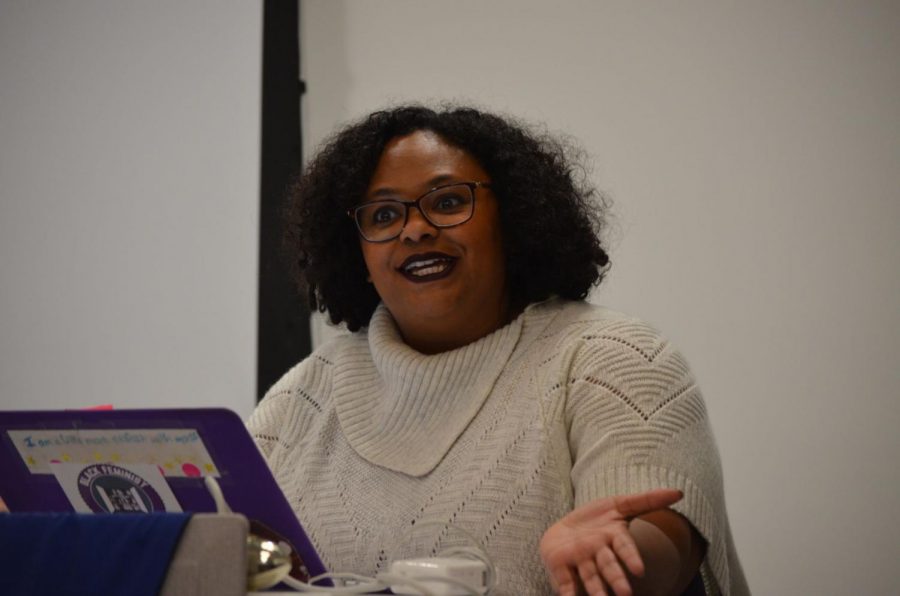Black feminist prophetics
The Department of History and American Studies coordinated the second event for the Joshua B. Stein Works in Progress Lectures of the semester on Tuesday, Dec. 5. Featured was Brown University PhD student Lydia Kelow-Bennett. Kelow-Bennett introduced her dissertation in progress regarding black feminist prophetics and the accountability, resilience, and implausible futures of black feminism.
Kelow-Bennett has a Bachelor of Arts in communications and has worked in education as well as with the Women of Color Leadership Project Advisory Board. She began her talk by discussing neoliberalism discourse and how it factors into black feminism.
The lecturer is practicing historical graphical research about how black feminism is becoming more “marketable” in U.S. culture. Additionally, she is tracing genealogies in U.S. black feminism history along with feminist thought from 1968-present times in order to account for what she claims is a rather difficult moment that the nation is in within the context of neoliberalism.
“Neoliberalism is a way in which citizenship and consumerism become so closely related that it becomes really difficult to understand things like belonging and citizenship outside the context of people’s abilities to buy things or to be recognized as economic factors,” Kelow-Bennett said.
Her project is a chronological dissertation on black feminists in the academy, black feminist anthologies, and the emergence of black feminism as an academic field. Kelow-Bennett named a few black feminist leaders such as Audre Lorde, June Jordan, and Joan Morgan. She mentioned that her chapter on methodologies is one of the most important parts of her project, and that, until recently, anthologies were the only way that black feminists were able to publish their work.
Kelow-Bennett tried to encourage the audience members to do some research of their own in the archives, because she has found during her own research that the archives are full of gossip.
Throughout her talk, Kelow-Bennett discussed how we as a nation are not thinking outside the current system to improve radical traditions. She links this idea to “Beyonce Feminism,” and how the celebrity uses her social authority to advocate for what she believes in.
The hashtag #BlackGirlMagic has circled the social media world as a way to encourage and celebrate the beauty, power, and resilience of black women. Kelow-Bennett connects this to black feminist thought in the Academy, and how it is criticized for being radical and too intellectual. She mentions how an overabundance of corporate power is being tested.
“Business and government authorities have power over lives,” Kelow-Bennett states. She connects this thought to the current issue of net neutrality and how it is actively being threatened.
The idea of black feminist prophetics correlates to black women staying accountable for future generations, keeping radical liberalism alive, and simply ensuring truth telling.
Kelow-Bennett posed the question, “Is Beyonce feminism good for the black feminism liberation?” She mentioned that survival is a key notion in Beyonce’s beliefs, but that the word “survival” means that the odds are against that surviving potential.
When asked about the given wave of feminism and the role that black feminism plays within it, Kelow-Bennett stated that white feminism is mainstream feminism, and added that interested individuals who would like to learn more about intersectionality should read Kimberlé Crenshaw’s book on the subject.
“Mainstream feminism doesn’t understand it. The only kind of intersectionality is black feminism,” Kelow-Bennett said, concluding the event with, “Black feminism is the only feminism that can change the world… it’s the only one combating white supremacy and patriarchy.”





